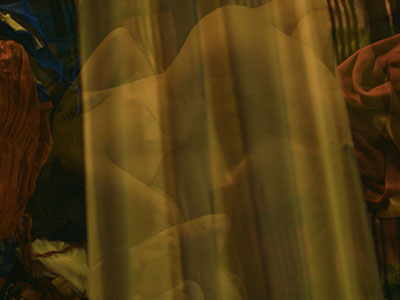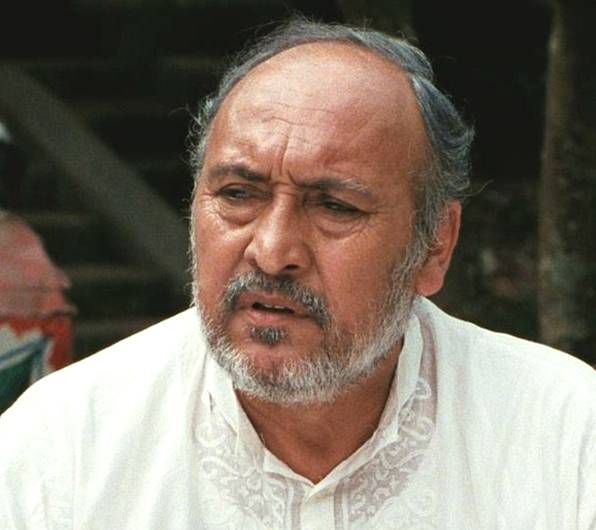Banned in India, the controversial new motion picture UNFREEDOM releases in the United States this Friday, May 29, in theaters in New York and Los Angeles as well as on nationwide digital platforms such as iTunes.
Award-winning actor Victor Banerjee stars in this bold new film and sat down for a candid talk about his role as “Fareed,” a liberal Muslim scholar who actively speaks out against terrorists that use the Muslim faith as a cover for their immoral actions.
INTERVIEW WITH “UNFREEDOM” STAR VICTOR BANERJEE
How were you first approached for this project and what made you want to take on this role?
An Assamese Director, Bidyut Kataki, whose feature film “As the River Flows”, I had worked in, was a friend of Aftab’s, I think, and sent him my contact details. Raj then had the guts to send me his gut-wrenching script. It was the sort of script that only a fool would turn down and, as stupid as I sometimes may seem, I’m not an “unthinking” imbecile.
What was it like working with a first-time director and what did you think of the script when you first read it?
Raj hardly qualifies as a first-time Director. He may be one “technically” but he knew the craft well and had done his thinking and homework with amazing thoroughness and utmost sincerity. The script, in my opinion, was a masterpiece. I wasn’t the least bit surprised to learn afterwards that it had already received the most prestigious University of Film and Video Association, Faculty Screenwriting Award.
How do you feel about the film being banned in India and the censorship issues it has faced?
I’m not the least bit surprised. It’s a shocking script and I am sure the film will make sensitive stomachs turn and moralizing brains fry in their own fat. Portraying Sex and Violence without self-censorship is an act of courage that very few Artists or Writers or Directors really have the forthrightness to present unashamedly. We all stand pompously on high moral ground and vociferously condemn the curbing of our freedoms of expression but very few of us ever cross the imaginary line of what will pass and what won’t, with the haughty abandonment characteristic of works like “Unfreedom”. Banning something is an act of cowardice perpetrated by judgmental personalities unsure of their own rights in our petty human existence. Even God banished Lucifer, but didn’t “ban” him: in our own Divine Opera, Durga and Kali subdue evil, never obliterate it. Ha! The absence of darkness makes light meaningless. “Tamasoma Jyotirgamaya” is our legacy of enlightenment, not moral or intellectual subjugation.
What challenges did shooting this film present that made it different from shooting your many past films?
What was painfully different was watching a Director driving his Producer alter ego crazy. It’s difficult wearing both hats at the same time. Poor Raj. Raj was a stubborn and exacting Director and up against wacky trade unionism that I believe didn’t apply to independent film makers in America, that the Producer in him was finding impossible to tackle and tolerate. But through it all, Raj kept his cool, always smiled his wry smile with charm, and gracefully extracted work from us actors and his very hard-working crew. Hari and Damon were tireless slaves who never gave up and fought for quality, and poor dear Roli whom Raj treated mercilessly so she could look after every possible and implausible and irrational need or whim of mine, are people whose morality and dedication remain permanently etched in my memory. They all stood shoulder to shoulder with Raj, through thick and thin, all the way through to the bitter and traumatic end.
What projects do you have coming up?
I just finished a short English feature made by a family of zany mathematicians who found as much money as they have brains to make a thriller noir film in 15 nights, in Faridabad, called “This will end in Murder”. Tushar Raheja a Wodehousian Director and his college roommate Mukund Sanghi, from a line of film makers and multiplex owners in Udaipur, all studying for their Doctorates in Mathematics, with wives and sisters teaching the subject in schools and colleges, debunked Bayes’ laws of (un)conditional probability. In the same realm of improbabilities, I’ve just last week finished working in the eminent Serbian Director Goran Paskaljevic’s Hindi feature film, “Dev Bhoomi”, shot in the Kedar Valley of the Garhwal Himalaya. 2015 is looking like a year when theories of improbabilities will short circuit and sparkle into very “different” cinematic realities for me. Amen. So be it.




